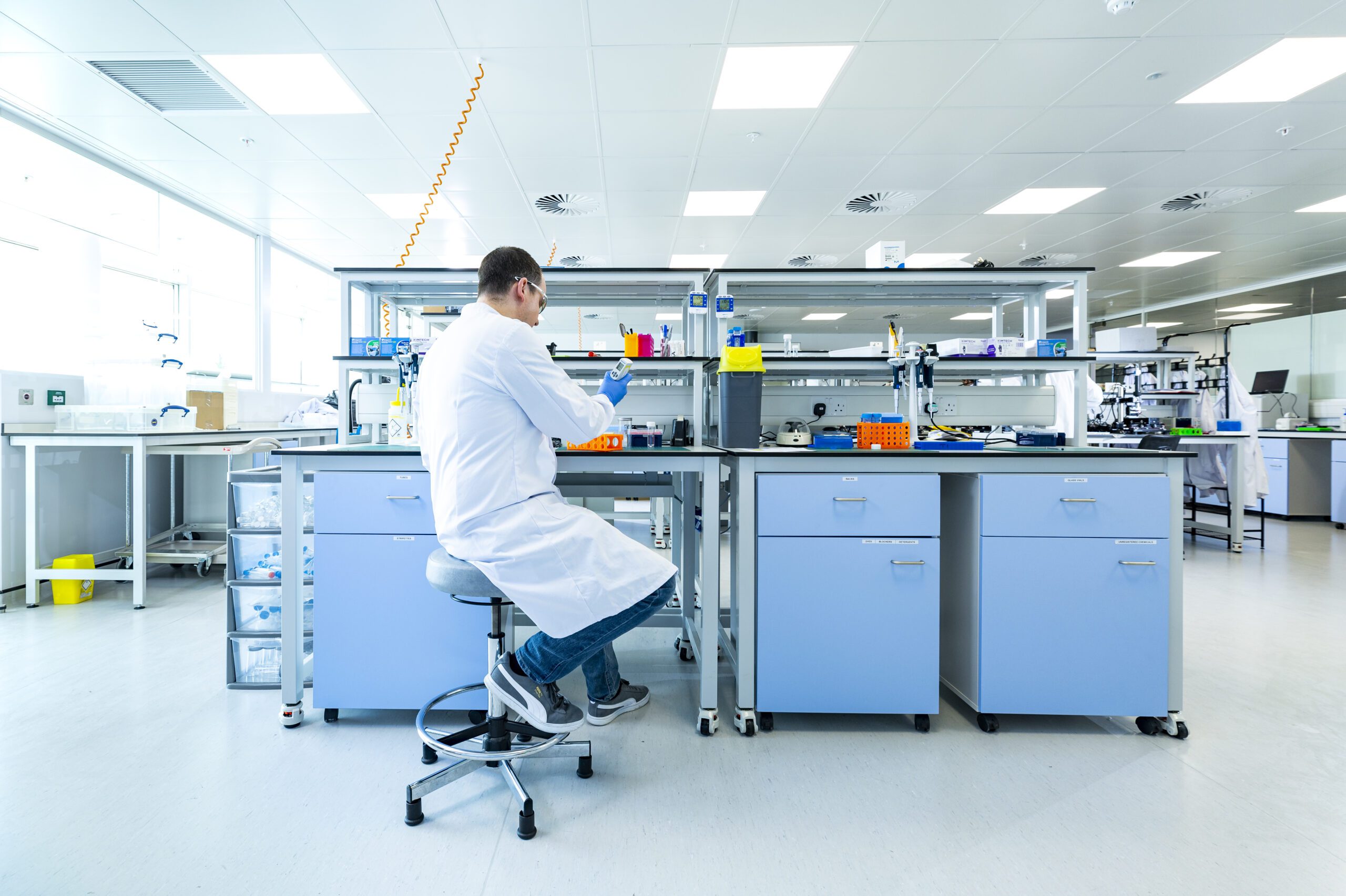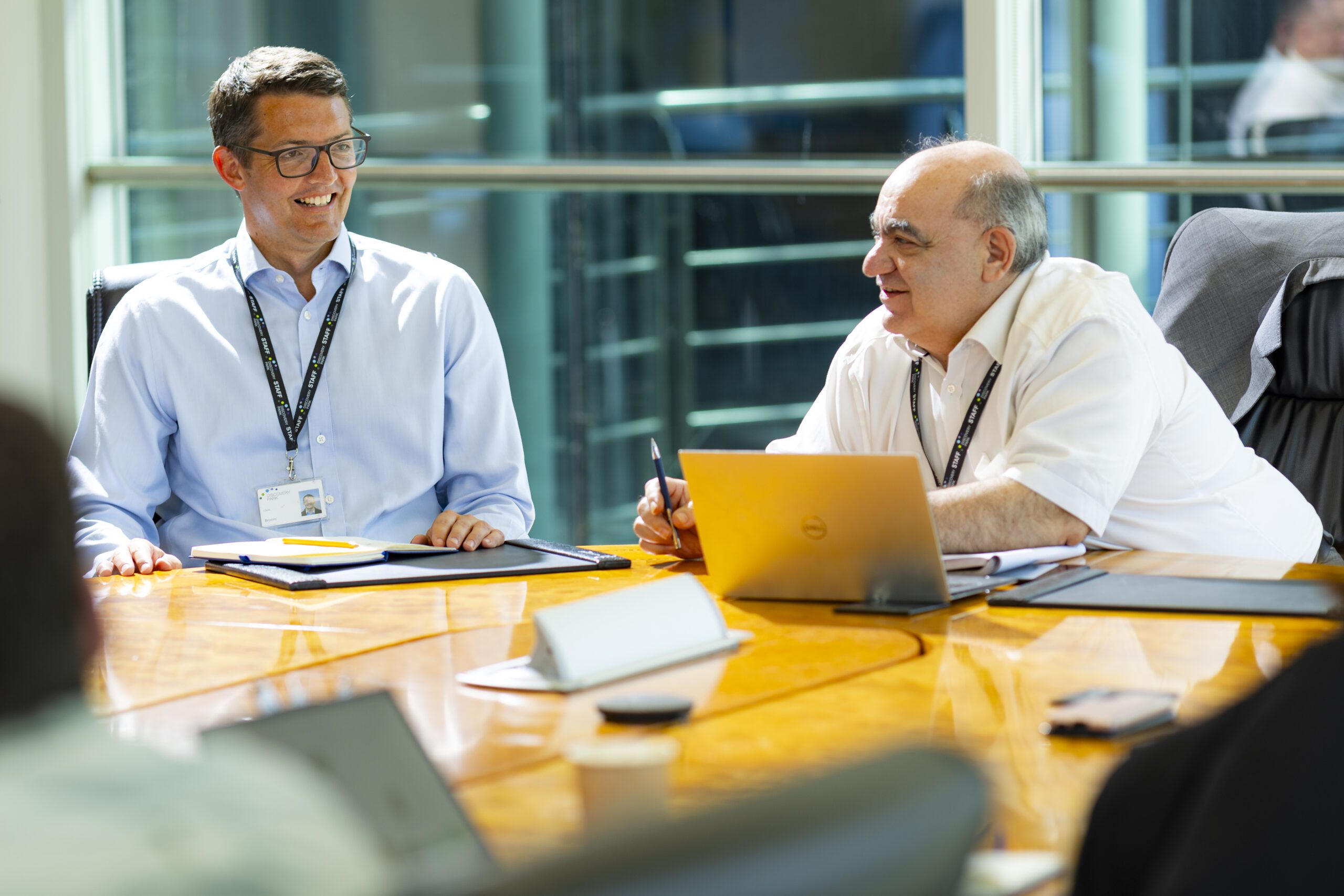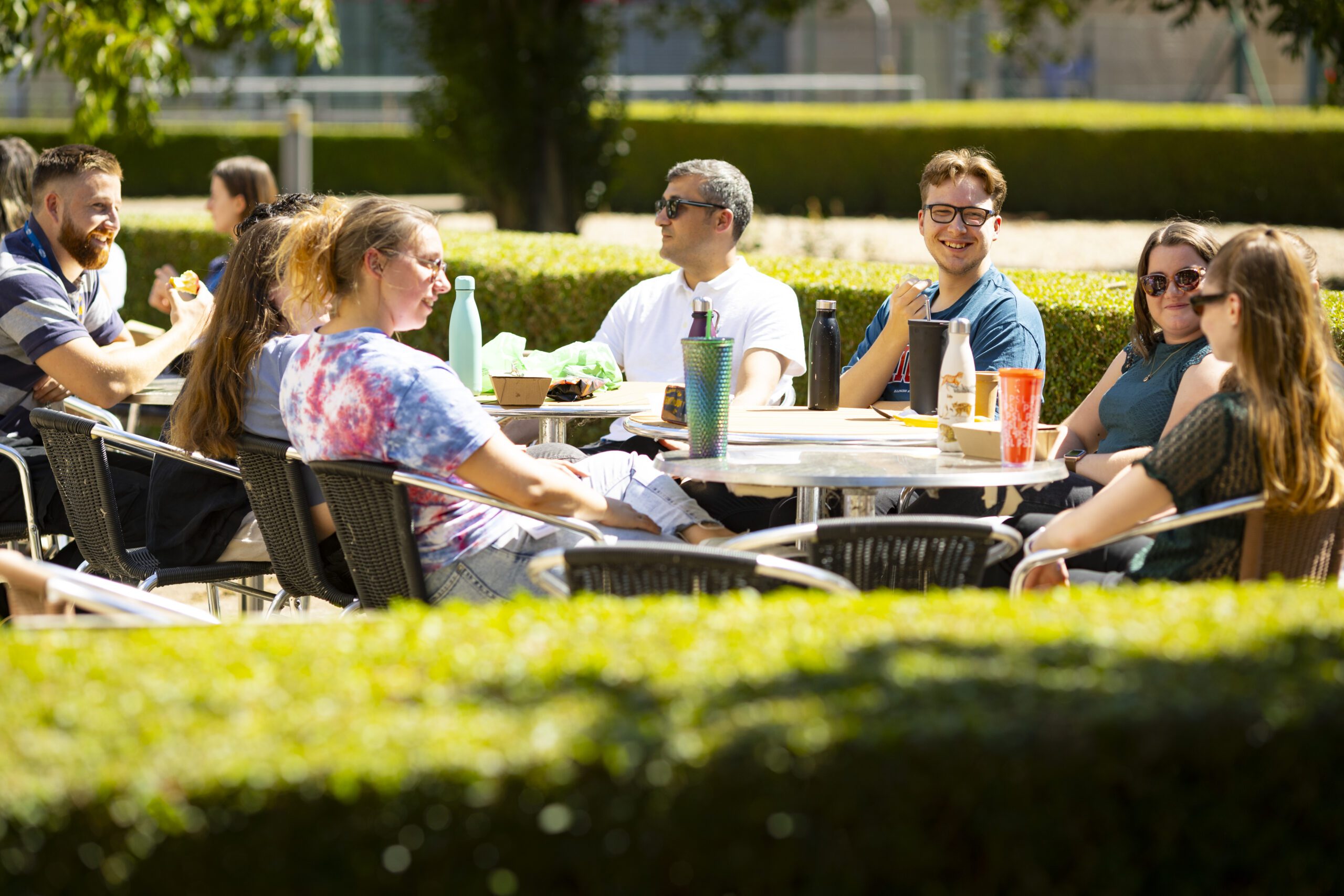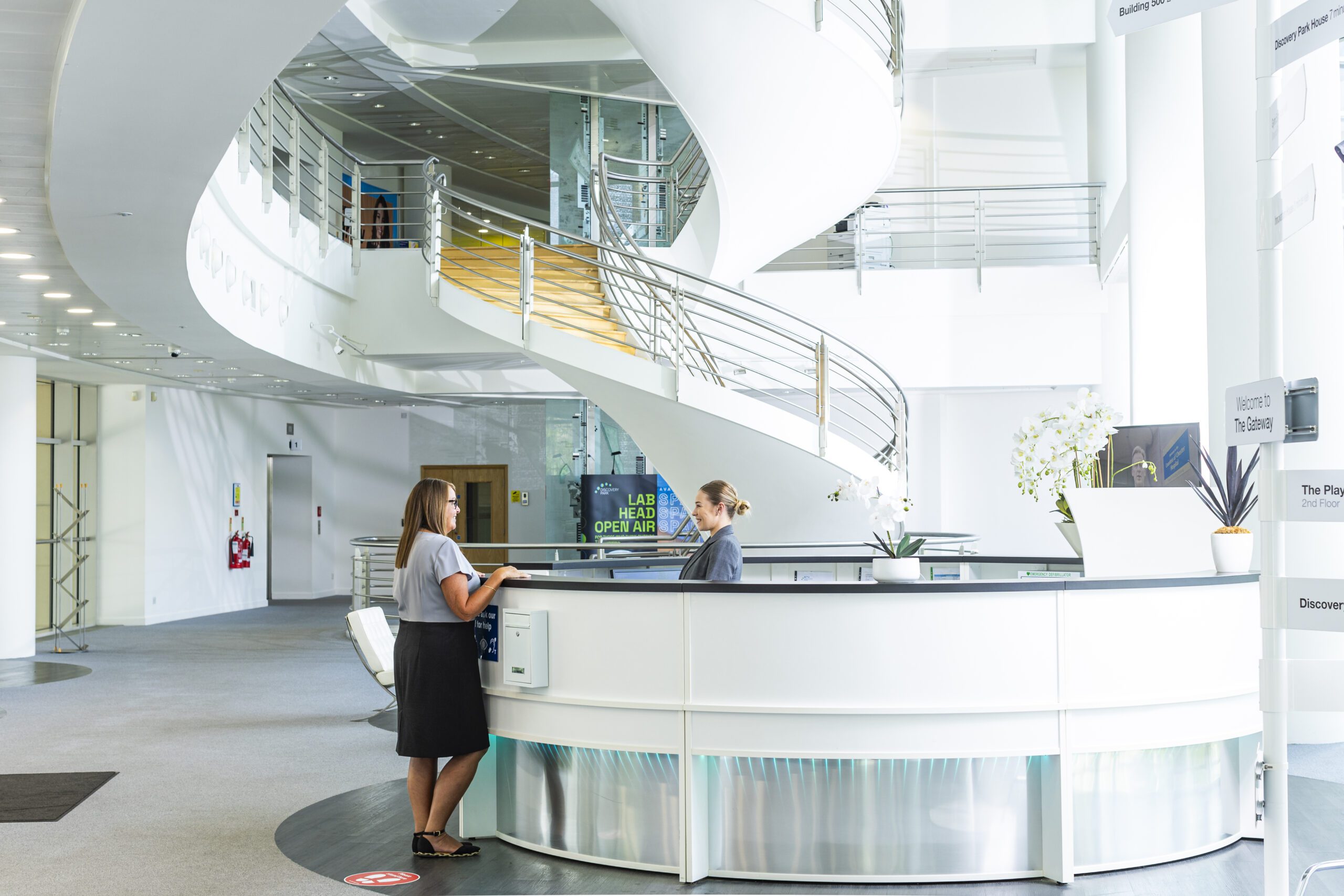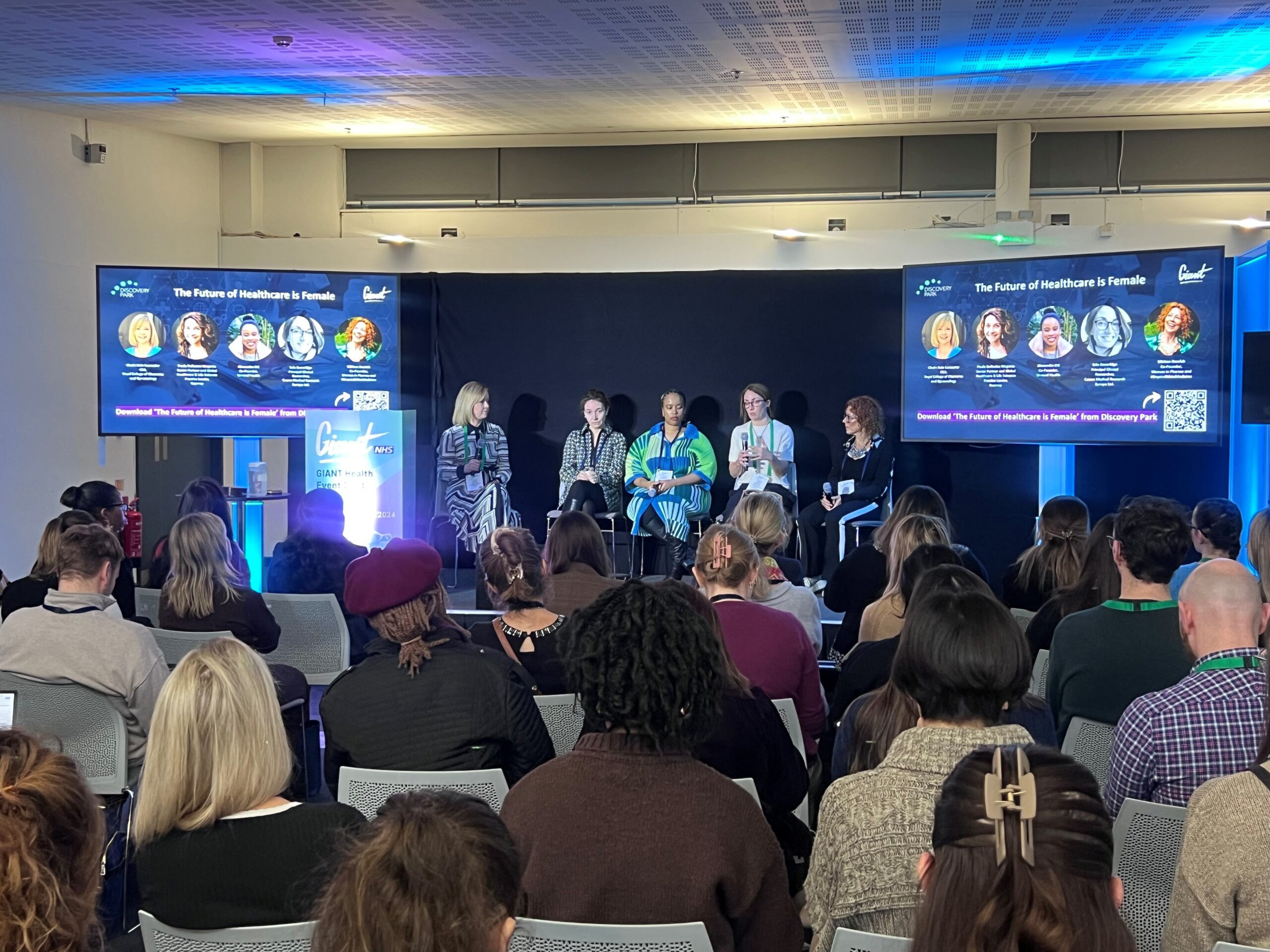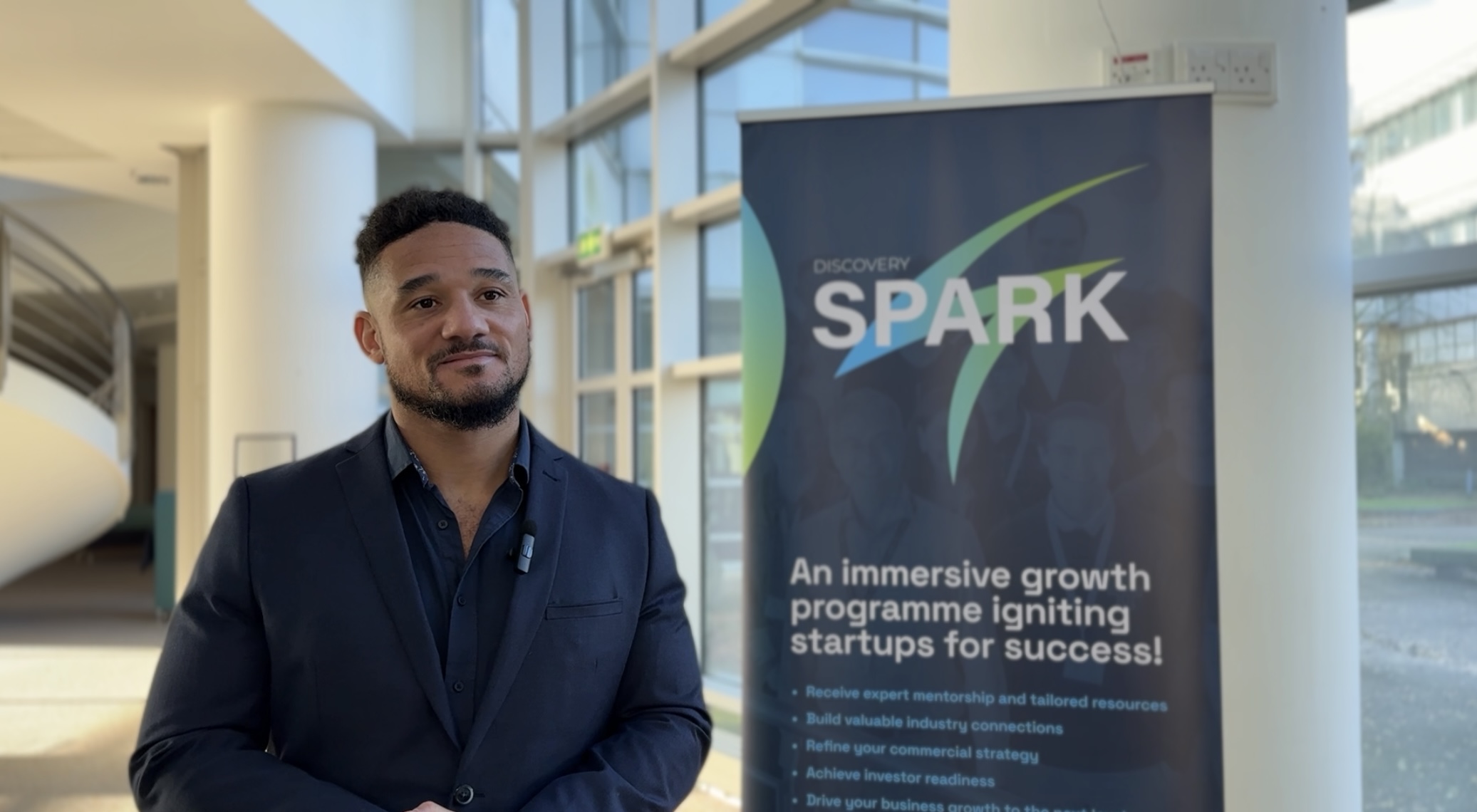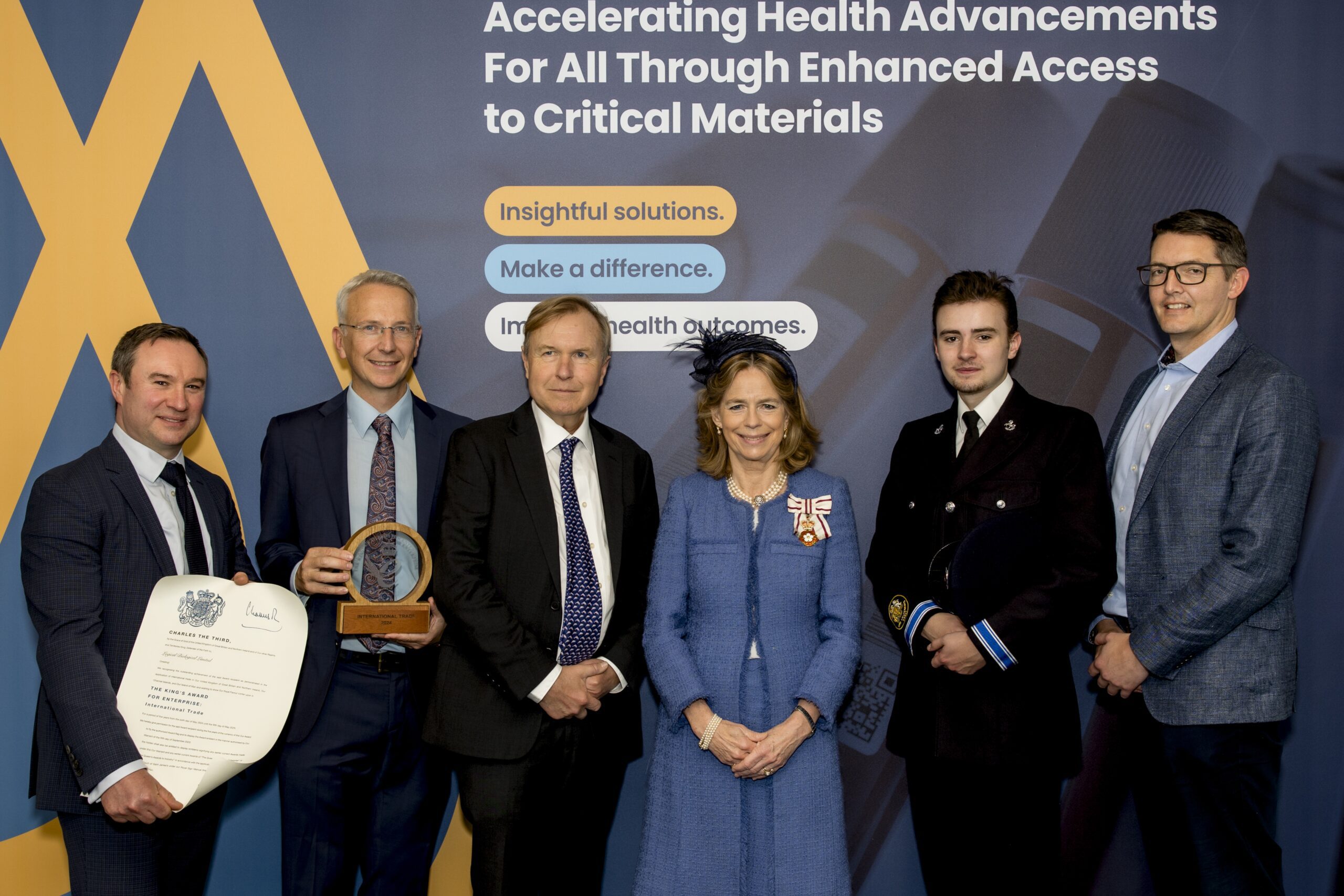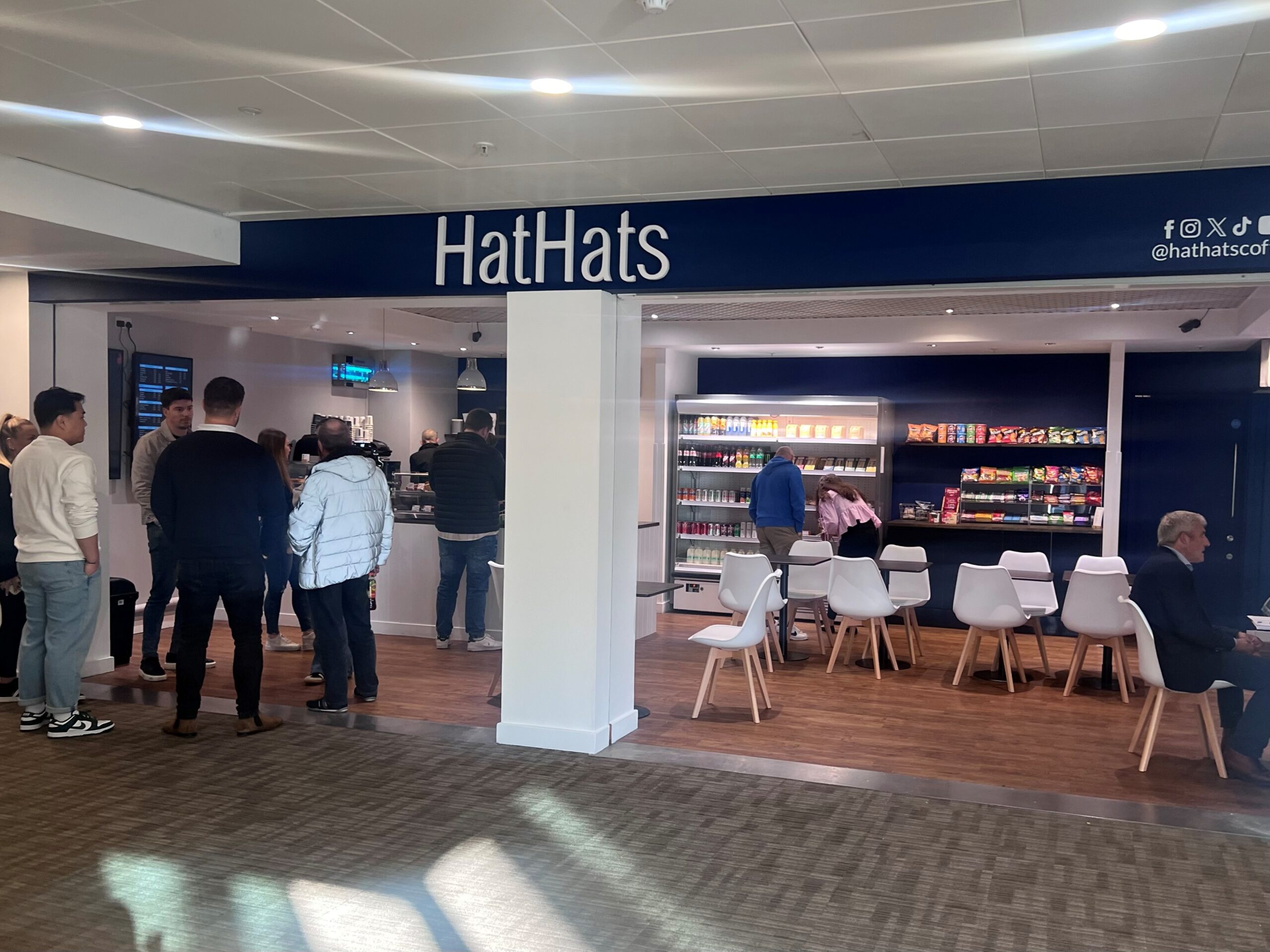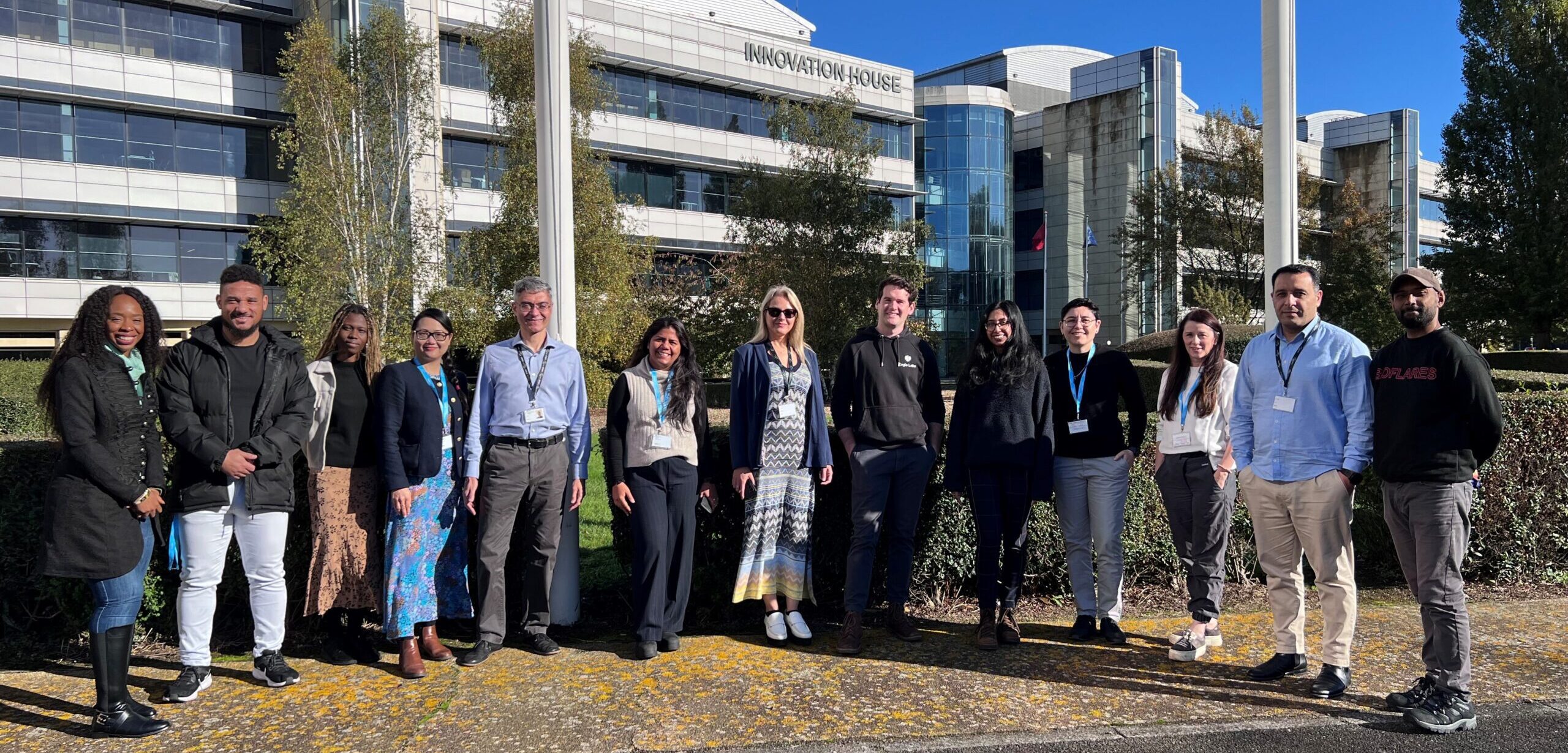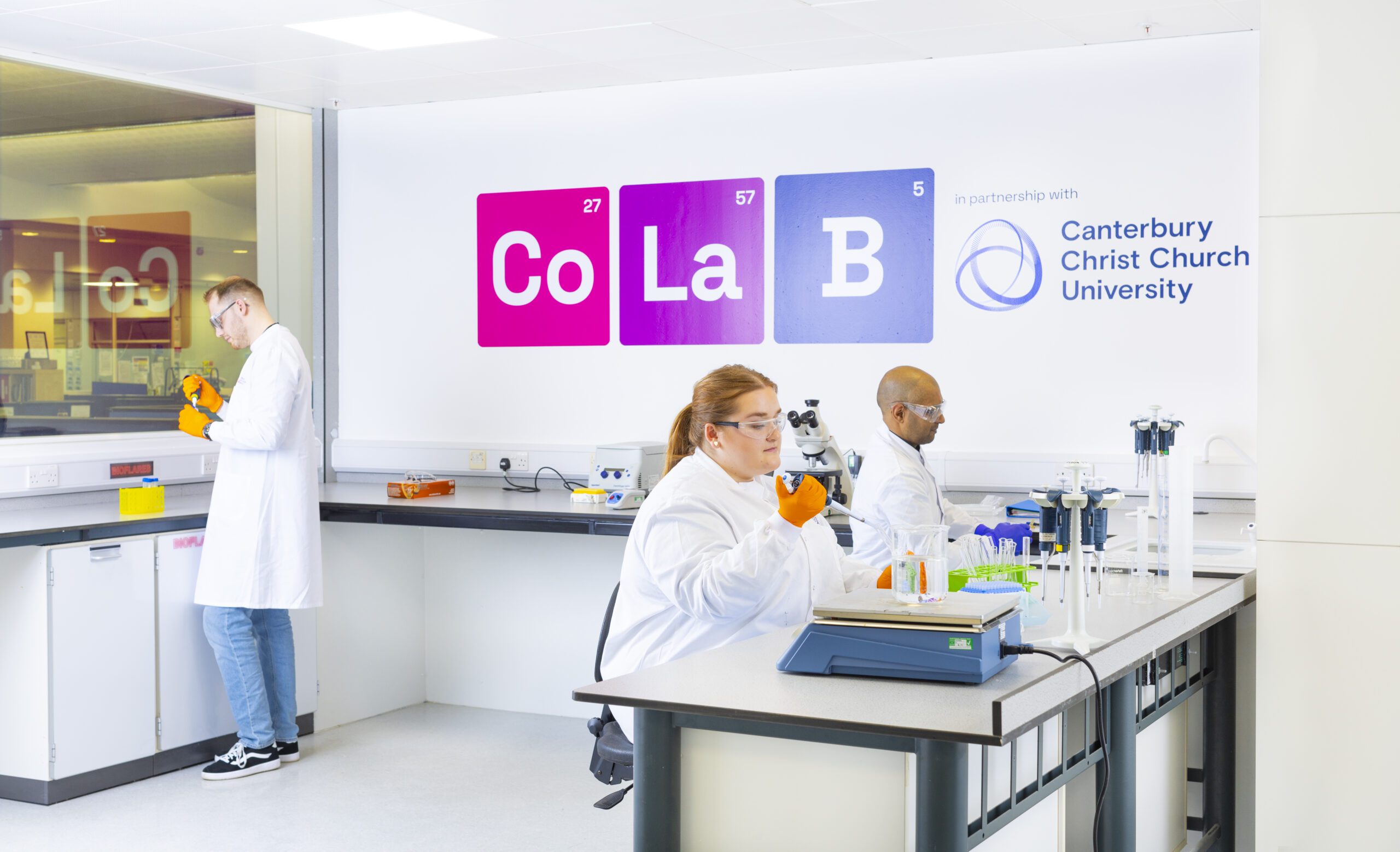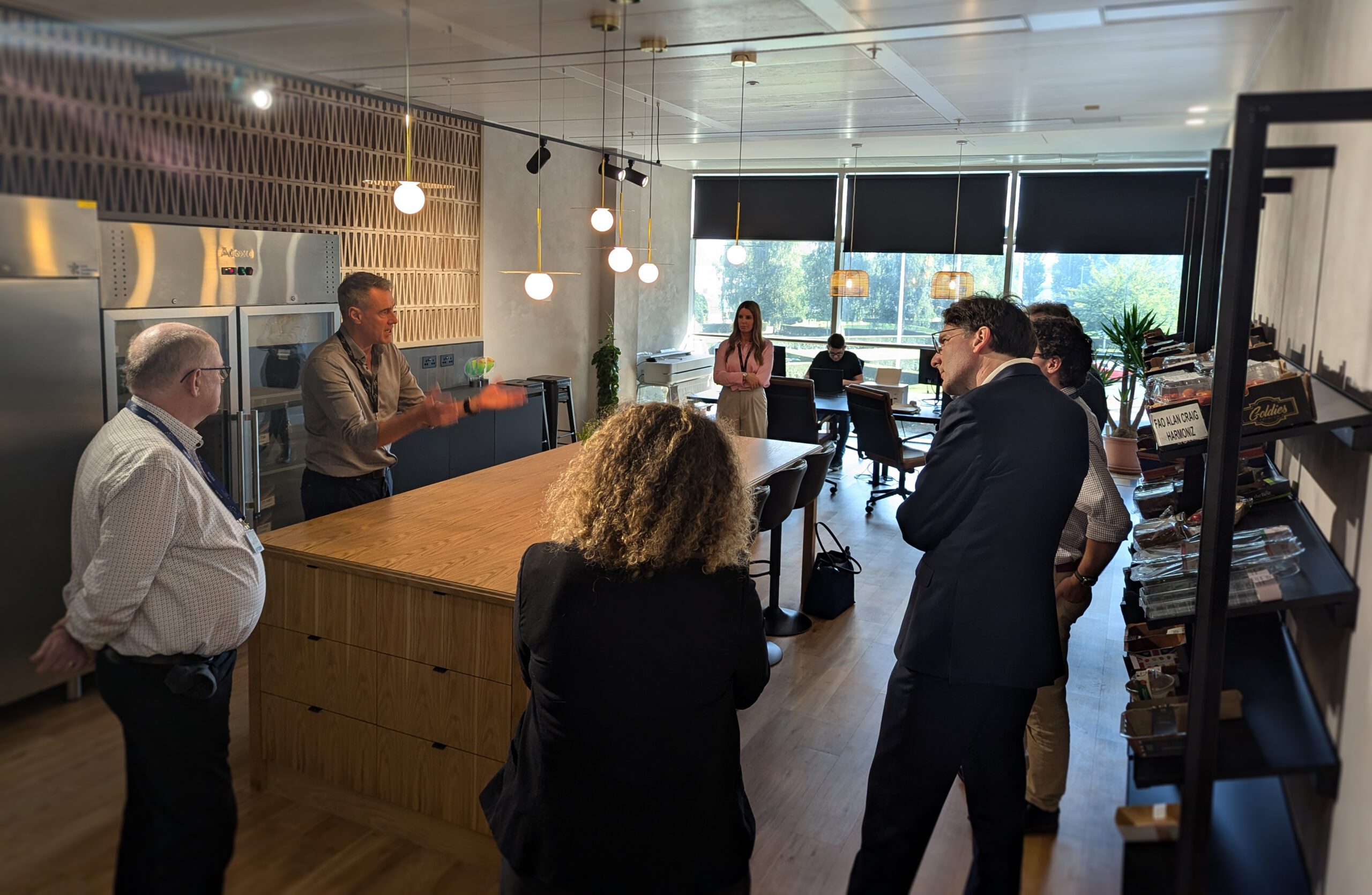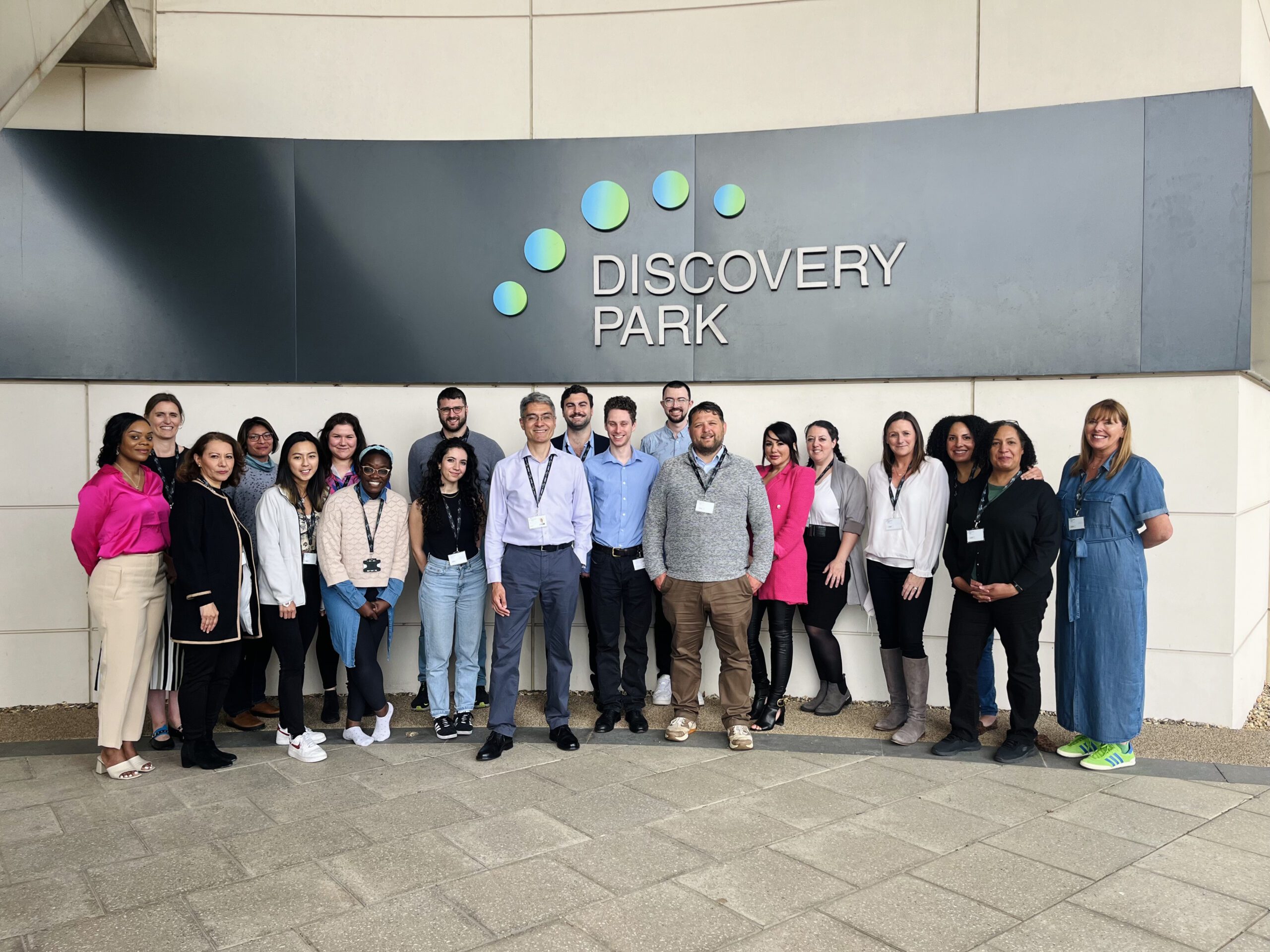Last week, Discovery Park brought together a panel of influential leaders in women’s health at Giant Health’s ‘Women’s Health Technology Show’, creating a powerful forum for thought-provoking discussion. Hosted by Kate Lancaster, CEO of the Royal College of Obstetrics and Gynaecology, the event featured a diverse group of voices from across the healthcare sector, all united by a common goal: to address the longstanding gaps in women’s health and to explore the transformative role of technology in bridging these divides.
The panel included:
- Paula Bellostas Mugerza, Senior Partner and Global Healthcare & Life Sciences Practice Leader at Kearney.
- Alexandra Oti, Co-Founder of Unravel Health.
- Erin Beveridge, Principal Clinical Researcher at Canon Medical Research Europe Ltd.
- Miriam Kenrick, Co-Founder of Women in Pharma and #BeyondBikiniMedicine.
Together, they delved deep into the changing landscape of women’s health, sharing valuable insights and fostering a conversation that could define the future of healthcare.
The Long-Standing Gaps in Women’s Healthcare
For decades, women’s healthcare has suffered from systemic neglect. From clinical trials that exclude women to the lack of products tailored to their needs, the gender gap in healthcare innovation has had far-reaching consequences.
“We need to stop viewing women’s health as a niche and instead recognise it as fundamental to human health,” Alexandra Oti remarked.
One striking example discussed was the absence of mandatory menopause education in many medical school curricula – even though every woman experiences it! This gap was starkly illustrated by a “hot flush” simulation test conducted on men, which highlighted how discomforting the experience can be and underscored the importance of taking women’s health concerns seriously.
The panel emphasised that the responsibility to close these gaps lies with everyone in the healthcare ecosystem: startups, investors, corporates, and policymakers.
The Rise of Femtech: Challenging the Status Quo
One of the most promising developments in recent years has been the emergence of Femtech – technology designed to address women’s health needs. This sector is disrupting the norm, fostering innovation, and empowering women like never before, and as Kate Lancaster highlighted, is estimated to be worth £60 billion in revenue by 2027.
However, hurdles remain. While Femtech startups often attract seed-level funding, many struggle to secure the resources needed to scale. As Miriam Kenrick noted, “There’s no shortage of brilliant ideas, but the capital flow hasn’t caught up yet. We need to keep making noise.”
Specific examples like fertility tracking apps, menopause management tools, and maternal health platforms were highlighted as areas where technology is beginning to bridge the gap.
Technology and Innovation as Game-Changers
The role of technology in advancing women’s health cannot be overstated. From AI-driven data analysis to inclusive care system redesign, innovation is paving the way for a more equitable future.
AI, for instance, is enabling researchers to uncover gender-specific trends that were previously overlooked. But as Erin Beveridge pointed out, “It’s not just about new tools; it’s about redesigning systems with equity at their core.”
Organisations like Canon Medical Research Europe are already applying AI to improve diagnostics and treatment pathways. At the same time, startups and collectives are leveraging technology to address access issues, especially in underserved communities.
Policy and Accessibility: Breaking Down Barriers
The panel also stressed the importance of accessibility and inclusion. Access remains a critical challenge for women’s healthcare. Geographical barriers, affordability, and systemic inequities continue to limit access for millions of women worldwide. Similarly BAME women face significantly higher health risks compared to their white counterparts, especially in maternal and reproductive health.
Paula Bellostas Mugerza highlighted initiatives like the Women’s X Collective, which are driving change by improving access and equity. Policy reform was another key focus, with panelists calling for:
- Mandatory inclusion of women in clinical trials.
- Standardised training for healthcare professionals on gender-specific issues like menopause.
- Incentives to support women-led innovations and ventures.
- The need for women to be listened to properly by healthcare professionals.
“If we want to do good science, it has to work for everyone,” Erin Beveridge remarked, summing up a core message of the discussion. Inclusivity in research isn’t just ethical – it’s essential for delivering effective healthcare.
Good science means ensuring women’s voices, experiences, and needs are integral to the process. This includes diversifying clinical trials, designing solutions with women in mind, and investing in research that reflects the entire population.
Beyond “Breasts and Babies”: Changing the Narrative
A powerful takeaway from the panel was the need to expand the narrative around women’s health. Historically, women’s healthcare has been narrowly defined, focusing mainly on reproductive health and breast health.
“There’s so much more to women’s health than ‘breasts and babies,’” said Erin Beveridge. “Women are rewriting the rules, and the industry must follow suit.”
From cardiovascular health to autoimmune diseases, women’s health encompasses a wide spectrum of needs that are often under-researched and underserved.
Reasons to Be Optimistic
Despite the challenges, the panel struck an optimistic tone. Kate Lancaster highlighted that initiatives like accelerator programmes, Femtech ecosystems, and networks such as the Health Innovation Network and Discovery Park are creating a thriving platform for innovation. With advocacy and collaboration, the panelists expressed confidence that funding and policy would eventually catch up to the passion and potential in this space.
The narrative is shifting, and with it comes hope. Women-led ventures and technological advancements are redefining healthcare, ensuring it becomes more inclusive, equitable, and effective.
How You Can Take Action
Inspired to get involved? Miriam Kenrick recommended starting with the book Invisible Women: Exposing Data Bias in a World Designed for Men. This eye-opening read sheds light on how data gaps have held women back in countless areas, including healthcare.
We need to keep banging the drum – whether by supporting Femtech startups, advocating for policy changes, or simply spreading awareness.
A Bright Future
As the event concluded, one thing was clear: the future of healthcare is female. With passionate advocates, groundbreaking technology, and a growing movement for change, we’re on the brink of a revolution.
And if the passion and vision of this panel are anything to go by, it’s going to be one worth watching, and supporting.
So let’s keep the conversation going. Join us on a mission to change the future of women’s health, creating health equity for all. Download our brochure for more information here.

